
Plagwitz: The Heartbeat of Leipzig's Industrial Charm
Welcome to Plagwitz, a unique and vibrant neighborhood in Leipzig that beautifully blends its industrial past with a creative present. Once an industrial hub, Plagwitz has transformed into a lively area brimming with art, culture, and history. As you stroll through its streets, you'll encounter a captivating mix of old factories and contemporary art spaces, making it a must-visit for any traveler. Art enthusiasts will revel in the many galleries and studios dotting the area. The Spinnerei, a former cotton mill, has been repurposed into a sprawling complex of artist studios and galleries. This creative enclave hosts regular exhibitions and events, providing a glimpse into the local art scene. Additionally, the Karl Heine Canal offers picturesque boat rides and is flanked by charming cafés and restaurants, perfect for a leisurely afternoon. Plagwitz is also a haven for history buffs. The neighborhood's industrial roots are visible in its architecture and the stories behind its buildings. Guided tours often reveal fascinating insights into the area's transformation and the visionaries behind it. For those looking to explore further, the nearby Clara Zetkin Park offers lush green spaces ideal for picnics, walks, and outdoor activities. Food lovers will not be disappointed, as Plagwitz boasts a diverse culinary landscape. From traditional German fare to international cuisine, there’s something to satisfy every palate. Don't miss the local markets, where you can sample fresh produce, artisanal goods, and regional specialties. Whether you're an art lover, history enthusiast, or simply looking to soak in the unique atmosphere, Plagwitz offers a rich and memorable experience for every visitor.
Local tips in Plagwitz
- Visit the Spinnerei for a deep dive into the local art scene.
- Take a boat ride along the Karl Heine Canal for a unique perspective of the neighborhood.
- Explore the local markets for fresh produce and unique souvenirs.
- Join a guided tour to learn about the industrial history and transformation of Plagwitz.
- Spend some time in Clara Zetkin Park for a relaxing break amidst nature.
Plagwitz: The Heartbeat of Leipzig's Industrial Charm
Welcome to Plagwitz, a unique and vibrant neighborhood in Leipzig that beautifully blends its industrial past with a creative present. Once an industrial hub, Plagwitz has transformed into a lively area brimming with art, culture, and history. As you stroll through its streets, you'll encounter a captivating mix of old factories and contemporary art spaces, making it a must-visit for any traveler. Art enthusiasts will revel in the many galleries and studios dotting the area. The Spinnerei, a former cotton mill, has been repurposed into a sprawling complex of artist studios and galleries. This creative enclave hosts regular exhibitions and events, providing a glimpse into the local art scene. Additionally, the Karl Heine Canal offers picturesque boat rides and is flanked by charming cafés and restaurants, perfect for a leisurely afternoon. Plagwitz is also a haven for history buffs. The neighborhood's industrial roots are visible in its architecture and the stories behind its buildings. Guided tours often reveal fascinating insights into the area's transformation and the visionaries behind it. For those looking to explore further, the nearby Clara Zetkin Park offers lush green spaces ideal for picnics, walks, and outdoor activities. Food lovers will not be disappointed, as Plagwitz boasts a diverse culinary landscape. From traditional German fare to international cuisine, there’s something to satisfy every palate. Don't miss the local markets, where you can sample fresh produce, artisanal goods, and regional specialties. Whether you're an art lover, history enthusiast, or simply looking to soak in the unique atmosphere, Plagwitz offers a rich and memorable experience for every visitor.
Iconic landmarks you can’t miss
UNIKATUM Children's Museum Leipzig
Explore, discover, and play at UNIKATUM Children's Museum in Leipzig! Interactive exhibits and workshops spark curiosity and creativity for kids of all ages in a vibrant setting.
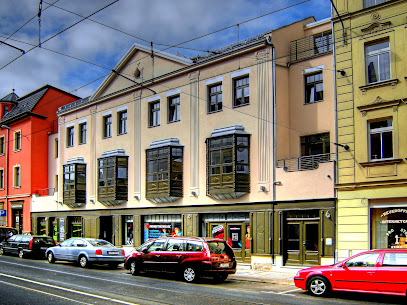
Crazy Clock
Discover the whimsical charm of Leipzig's Crazy Clock in Plagwitz, a vibrant landmark embodying the district's artistic spirit and offering a playful perspective on time.
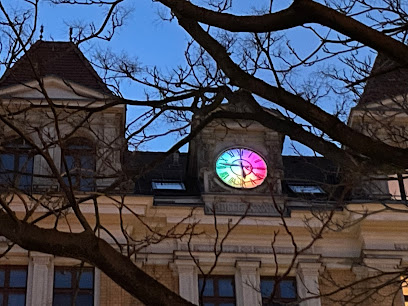
Park Bürgerbahnhof Plagwitz
Discover a revitalized urban oasis in Leipzig's Plagwitz district, where industrial history meets community spirit and green innovation at Park Bürgerbahnhof Plagwitz.
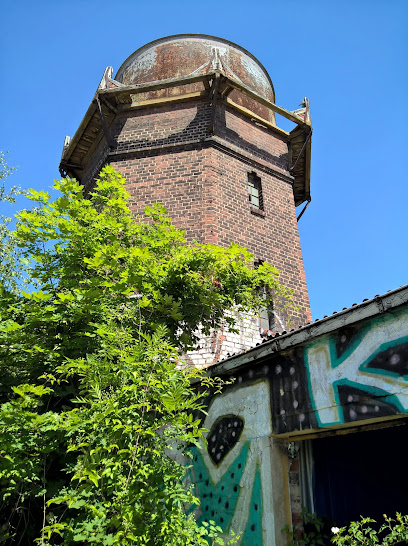
Urbane Kunst/ Streetart
Explore Leipzig's vibrant Urbane Kunst/Streetart scene in Kleinzschocher, a dynamic open-air gallery showcasing local and international artists within the unique Urbaner Wald setting.
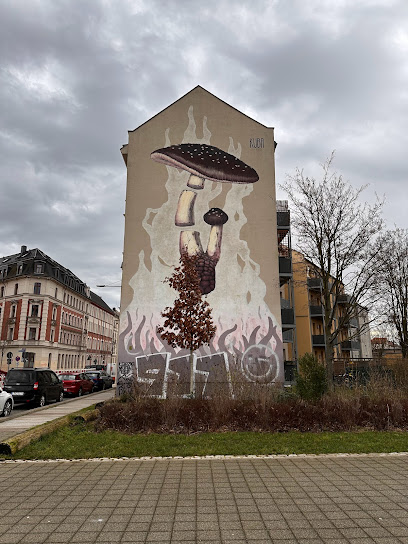
Alte Eiche
Discover a tranquil garden oasis in Leipzig's vibrant Plagwitz district, offering a peaceful escape amidst the area's industrial-chic charm and creative energy on Karl-Heine-Straße.
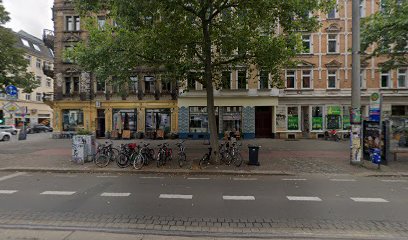
Urbane Kunst
Explore Leipzig's vibrant street art scene in the Plagwitz district, where colorful murals and graffiti transform the urban landscape into an open-air gallery of artistic expression.
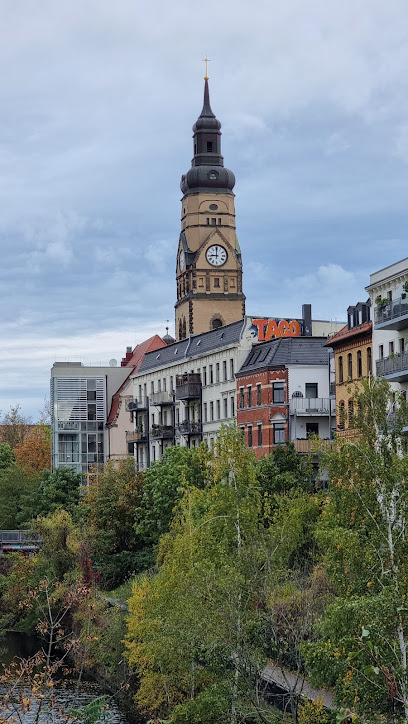
Rathausplatz Plagwitz
Discover Rathausplatz Plagwitz: A historic square in Leipzig's vibrant Plagwitz district, undergoing revitalization and surrounded by art, culture, and industrial heritage.
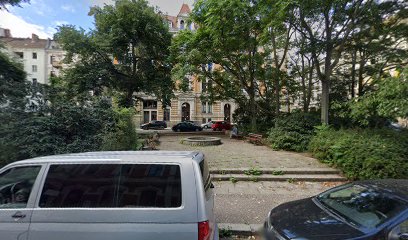
Blick auf Weiße Elster
Discover the serene beauty of Blick auf Weiße Elster in Leipzig's Plagwitz, a perfect blend of nature and urban charm offering picturesque river views, tranquil walks, and a vibrant local atmosphere.
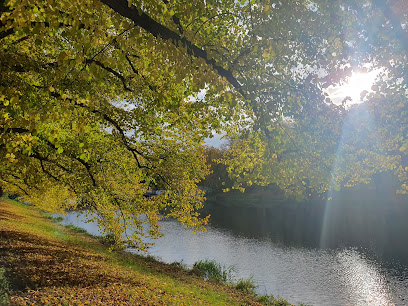
„Musikkapelle“ auf dem Karl-Heine-Platz
Experience the vibrant heart of Leipzig's Alt-West district at Karl-Heine-Platz, a dynamic hub where history, culture, and community converge in a lively public space.
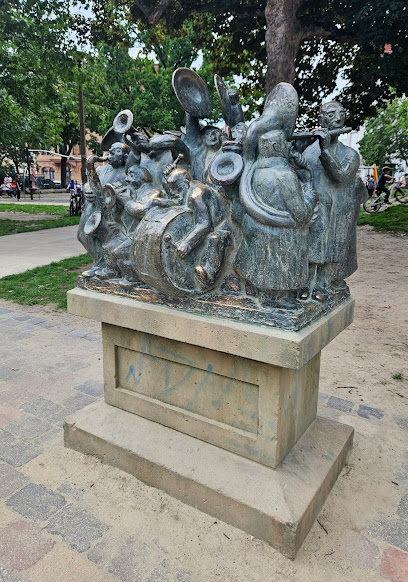
Unmissable attractions to see
Monument to the Battle of the Nations
Explore the monumental Völkerschlachtdenkmal in Leipzig, a historic site honoring the Battle of the Nations with stunning architecture and views.
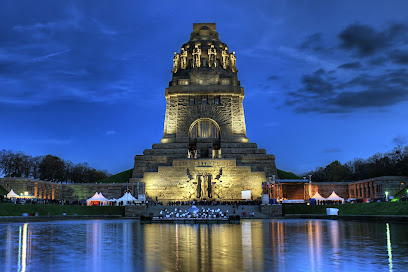
Marktplatz Leipzig
Discover the historical charm of Marktplatz Leipzig, a vibrant market square surrounded by stunning architecture and rich cultural experiences.
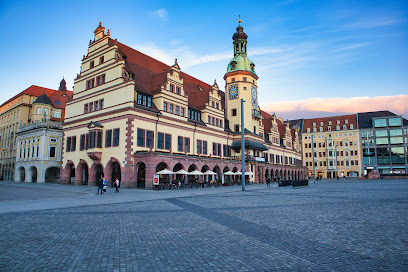
Leipzig Panometer
Explore the Leipzig Panometer: A captivating museum experience featuring breathtaking 360-degree panoramic art and rich historical narratives.
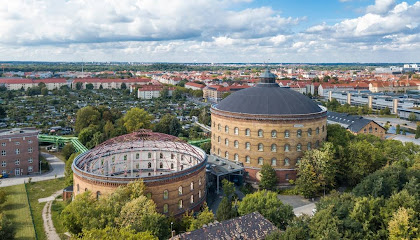
Wildpark Leipzig
Explore Wildpark Leipzig, a captivating wildlife park in Leipzig offering a close encounter with nature and diverse animal species in a serene setting.
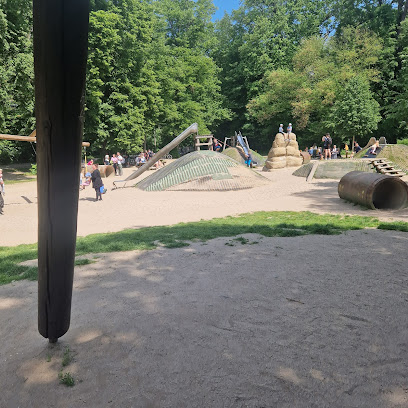
Leipziger Auwald
Explore the serene Leipziger Auwald, a stunning nature preserve in Leipzig offering lush scenery and diverse wildlife for the perfect outdoor experience.
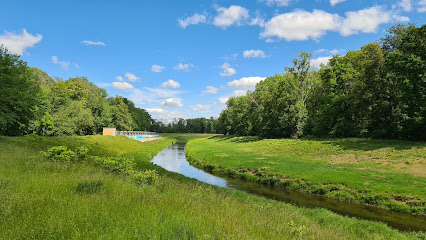
Botanical Garden Leipzig
Explore the Botanical Garden of Leipzig, a serene escape filled with diverse flora and tranquil landscapes, perfect for relaxation and education.
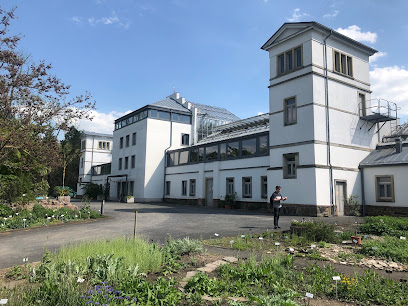
Sachsenbrücke Leipzig
Discover the stunning Sachsenbrücke in Leipzig, where history meets breathtaking views, making it a must-visit tourist attraction.
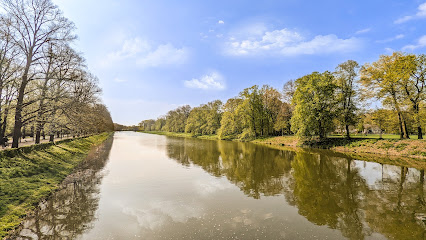
UNIKATUM Children's Museum Leipzig
Explore creativity and education at UNIKATUM Children's Museum Leipzig, a vibrant cultural haven for families and young explorers.
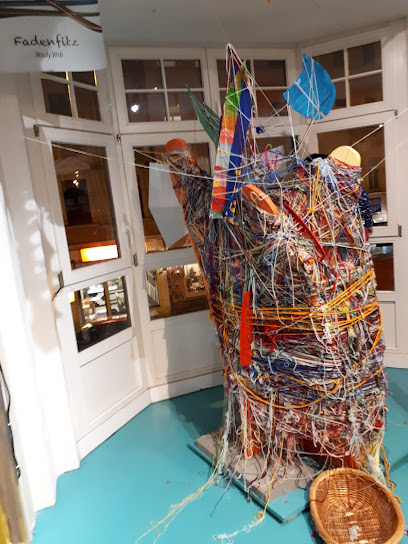
Crazy Clock
Explore Crazy Clock in Leipzig, a whimsical tourist attraction that blends art, culture, and creativity in a playful atmosphere.
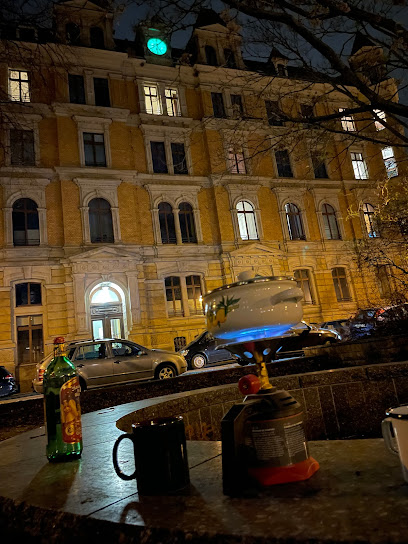
Magnolien am Park
Explore the serene beauty of Magnolien am Park in Leipzig, where nature and tranquility converge in a picturesque setting.
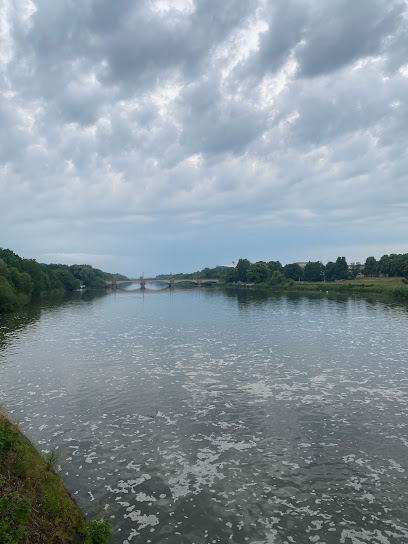
Elster Lofts Bridge
Explore the Elster Lofts Bridge in Leipzig, a stunning blend of history, architecture, and nature, perfect for photography and leisurely walks.
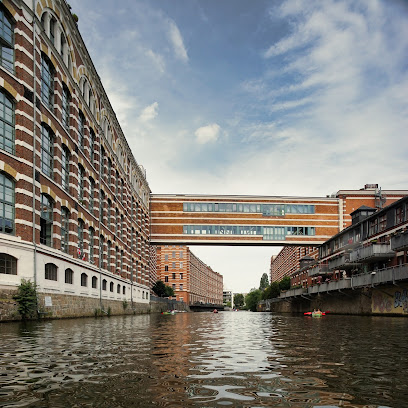
Japanischer Schnurbaum
Explore the serene beauty of the Japanese Schnurbaum in Leipzig, a stunning tourist attraction perfect for nature lovers and photo enthusiasts.
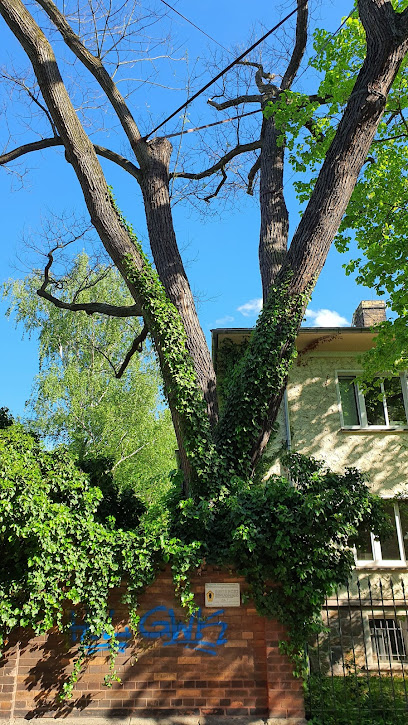
Blick auf Weiße Elster
Experience the serene beauty of Leipzig at Blick auf Weiße Elster, a perfect spot for relaxation and picturesque views along the river.
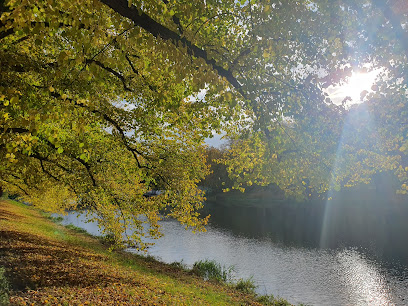
Musikschule
Discover the heart of Leipzig's musical heritage at Musikschule, a cultural gem in the vibrant Plagwitz district.
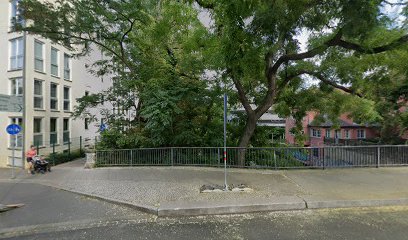
Essential places to dine
Gopalast Leipzig
Discover the rich flavors of Asia at Gopalast Leipzig—your destination for authentic Chinese cuisine, Mongolian barbecue, and exquisite sushi.
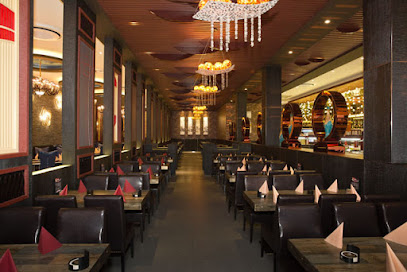
Kaiserbad
Experience authentic German cuisine at Kaiserbad, Leipzig's culinary gem in the heart of Plagwitz offering delightful seasonal dishes.
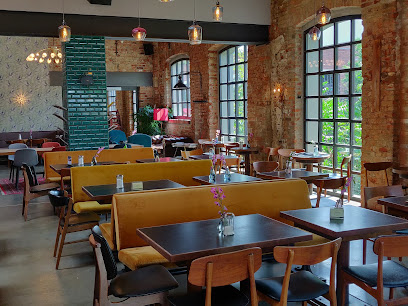
Ouzeri Was.Kost.Das
Experience the rich flavors of Mediterranean cuisine at Ouzeri Was.Kost.Das in Leipzig's vibrant Plagwitz district.
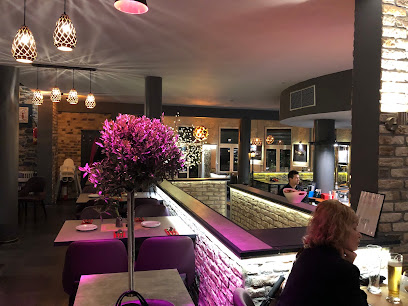
Don Kichot
Experience authentic Mediterranean cuisine at Don Kichot in Leipzig's Plagwitz district—where taste meets culture.
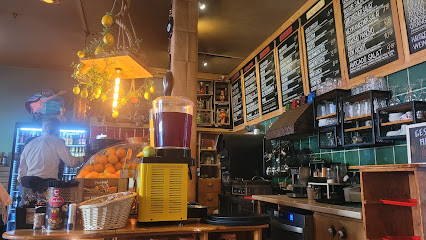
Restaurant Casablanca
Experience authentic Moroccan cuisine in Leipzig at Restaurant Casablanca - where flavors come alive in a vibrant setting.
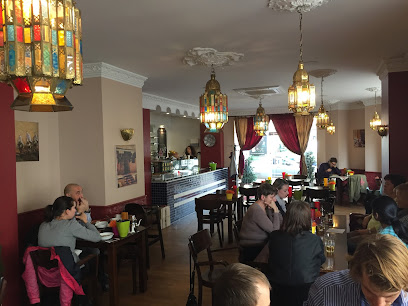
Gemrieli - Georgisches Restaurant
Discover the flavors of Georgia at Gemrieli in Leipzig - where every dish tells a story.
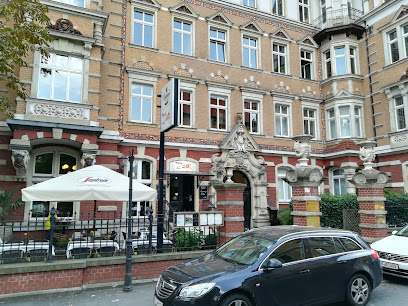
Prellbock das Restaurant
Experience authentic German cuisine at Prellbock das Restaurant in Leipzig's Plagwitz district, featuring a lively beer garden and traditional dishes.
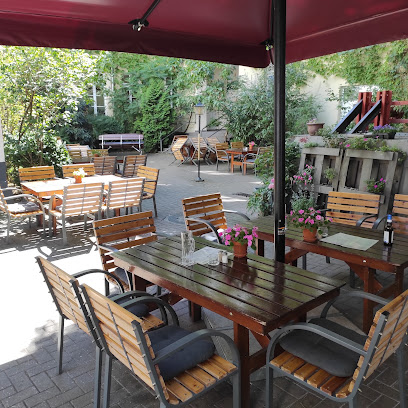
ADRIANO RESTAURANT
Experience authentic Italian flavors at Adriano Restaurant in Leipzig's Plagwitz district – where every meal is a celebration of culinary excellence.
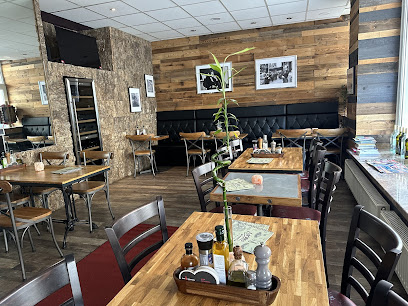
FUZO Leipzig
Experience authentic Vietnamese cuisine in Plagwitz at FUZO Leipzig – where every dish is crafted with passion and fresh ingredients.
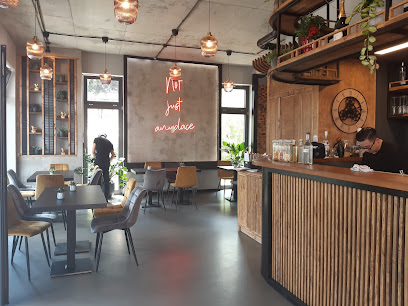
Bamboo's Streetfood
Discover the vibrant flavors at Bamboo's Streetfood in Leipzig – where authentic cuisine meets a lively atmosphere.
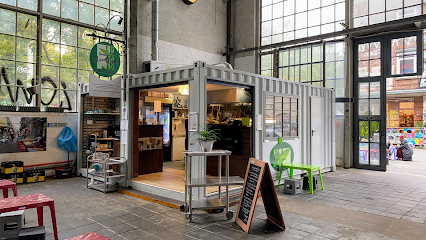
Markets, malls and hidden boutiques
HUMANA Secondhand & Vintage
Discover the charm of sustainable fashion at HUMANA Secondhand & Vintage in Leipzig, where unique vintage finds await every eco-conscious shopper.
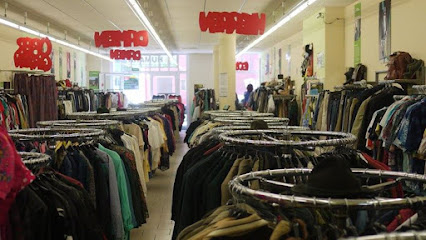
Hafen - Concept Store Leipzig
Explore Hafen in Leipzig: A creative concept store brimming with unique gifts, art, and quality stationery from local artisans.
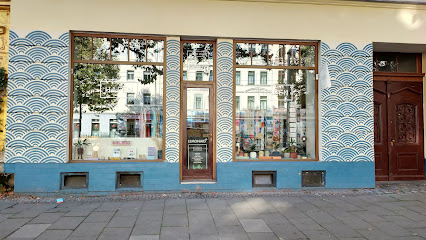
Küss mich wach Second hand vintage Damen und Herren
Explore unique vintage fashion at Küss mich wach, a charming second-hand clothing store in Leipzig's Plagwitz district.
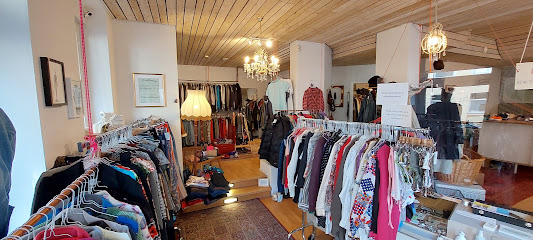
Schwesterchen & Schwesterchen
Explore Leipzig's hidden gem: Schwesterchen & Schwesterchen, an eclectic gift and used clothing store filled with unique treasures.
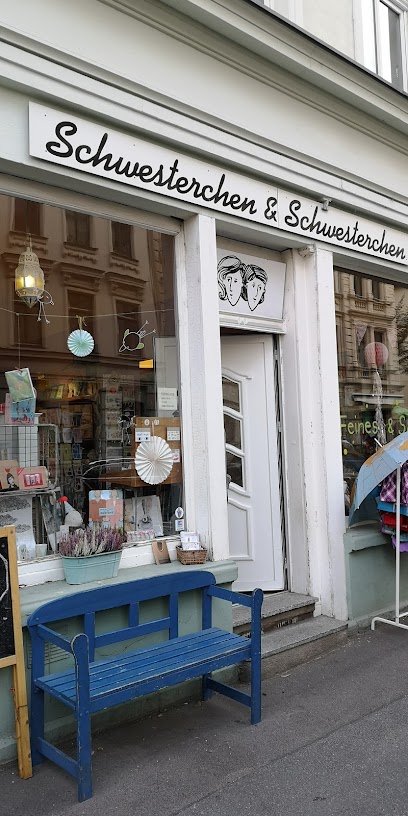
Garderobe im Westwerk - Vintage und Second Hand
Explore Garderobe im Westwerk in Leipzig for unique vintage clothing and accessories that reflect your personal style and local culture.
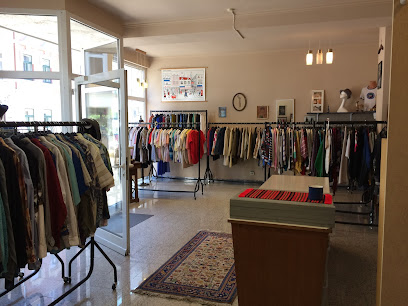
deepmello & friends- slow fashion and fine living
Explore sustainable fashion and unique styles at Deepmello & Friends in Leipzig, where slow fashion meets fine living in a charming atmosphere.
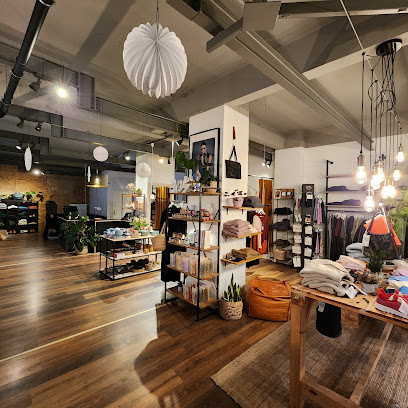
Hipsters Paradise Second Hand
Discover unique vintage fashion at Hipsters Paradise Second Hand in Leipzig, where sustainability meets style in a trendy thrift haven.
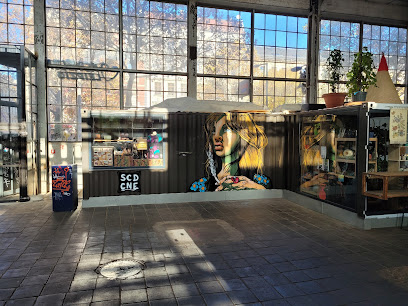
Saxony ducks
Explore the artistic flair of Saxony Ducks in Leipzig, where fashion meets local creativity in a vibrant atmosphere.
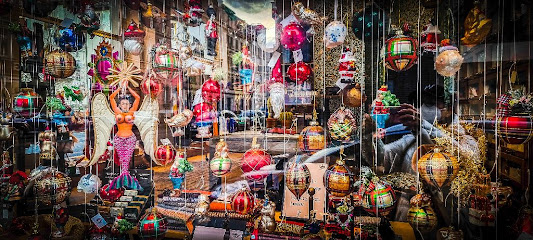
KAZIMIR Vintage im Westwerk
Explore KAZIMIR Vintage im Westwerk in Leipzig - a unique clothing store offering curated vintage pieces that reflect the city's vibrant culture.
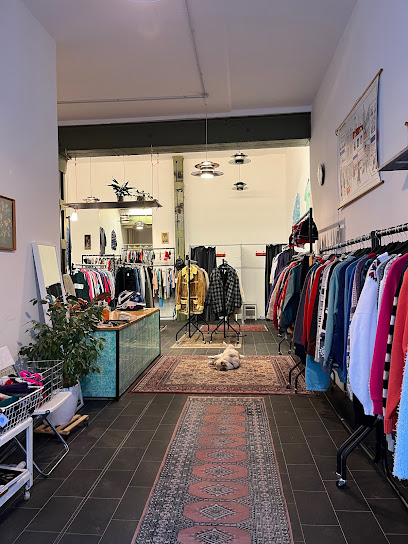
EinzigArtiger-Kreativ-Online-Shop
Explore unique custom fashion and accessories in Leipzig's Plagwitz district at EinzigArtiger-Kreativ-Online-Shop.

Essential bars & hidden hideouts
Tante Rosi
Discover the lively ambiance and unique charm of Tante Rosi, Leipzig's beloved pub in the heart of Plagwitz with a diverse drink selection.
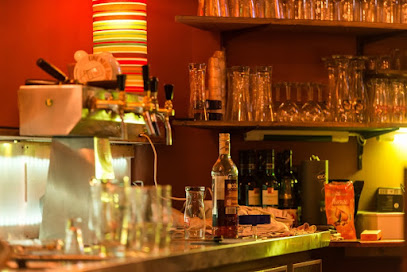
Doktor Bersi
Experience the vibrant nightlife of Leipzig at Doktor Bersi, where great drinks meet a welcoming atmosphere.
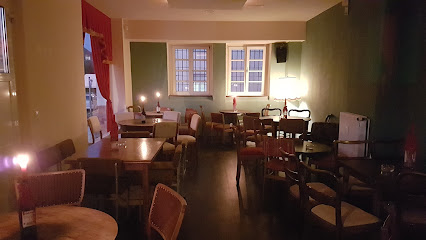
Liqwe
Discover the vibrant nightlife at Liqwe, a lively bar in Leipzig's Plagwitz district, famous for its cocktails and welcoming atmosphere.
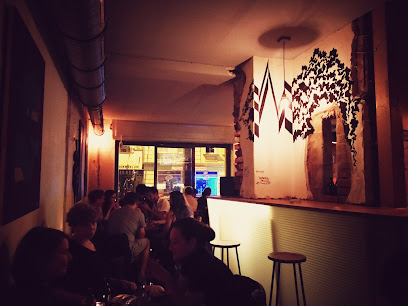
KOKILLE - Braukombinat Leipzig
Discover KOKILLE - Braukombinat Leipzig, a lively brewpub in Plagwitz, offering exquisite house-brewed beers and a cozy atmosphere for all beer lovers.
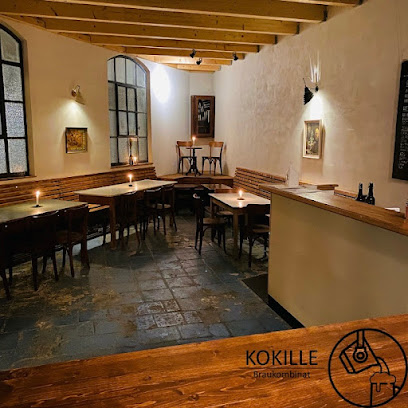
Old Rebel
Experience the lively ambiance and eclectic drink selection at Old Rebel, a must-visit bar in Leipzig's creative Plagwitz district.
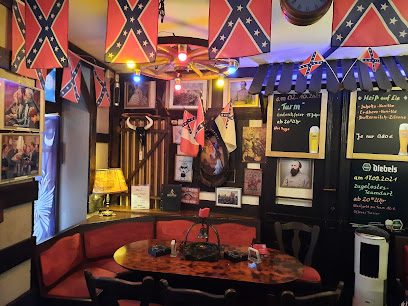
Stallwache Westwerk
Experience Leipzig's nightlife at Stallwache Westwerk, where live music meets a vibrant bar atmosphere, perfect for unforgettable evenings.
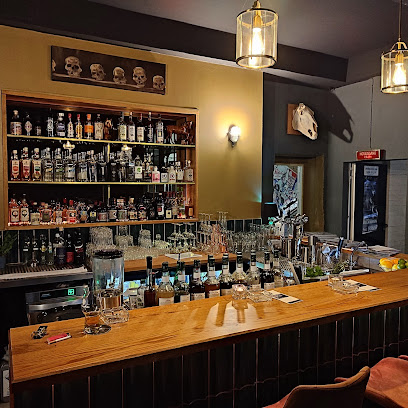
Nepomuk
Experience the vibrant atmosphere of Nepomuk, a beloved bar and café in Leipzig's Plagwitz district, perfect for drinks and relaxation.
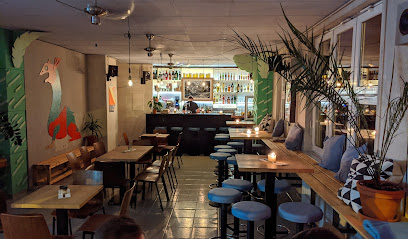
Ventil
Discover the vibrant nightlife of Leipzig at Ventil, where stylish cocktails and a lively atmosphere await in the heart of Plagwitz.
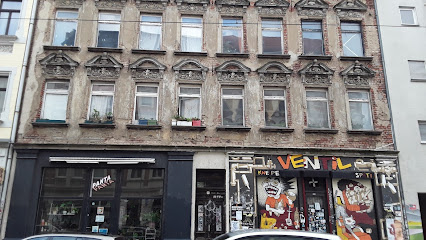
Drinks Schabernack
Experience the vibrant nightlife at Drinks Schabernack in Leipzig's Plagwitz district with a diverse drink selection and a warm, inviting atmosphere.
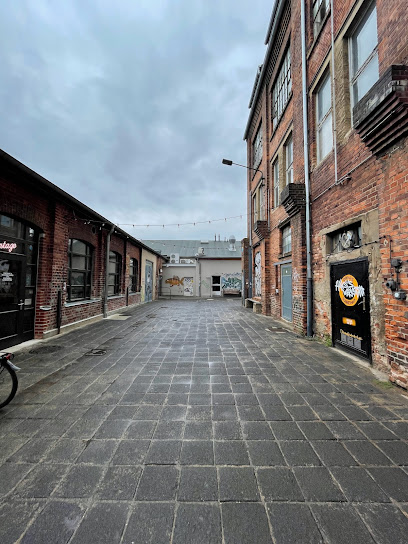
Elo's Bar
Experience the vibrant nightlife at Elo's Bar in Leipzig's Plagwitz district, where local culture meets a friendly atmosphere.
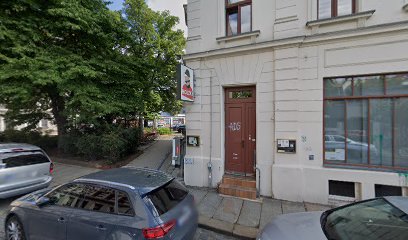
Local Phrases
-
- HelloHallo
[ha-lo] - GoodbyeAuf Wiedersehen
[ouf vee-der-zay-en] - YesJa
[ya] - NoNein
[nine] - Please/You're welcomeBitte
[bi-te] - Thank youDanke
[dahn-ke] - Excuse me/SorryEntschuldigung
[ent-shool-di-gung] - How are you?Wie geht es dir?
[vee gayt es deer] - Fine. And you?Gut. Und dir?
[goot oont deer] - Do you speak English?Sprechen Sie Englisch?
[shpre-khen zee eng-leesh] - I don't understandIch verstehe nicht
[ikh fer-shtay-e neekt]
- HelloHallo
-
- I'd like to see the menu, pleaseIch möchte bitte die Speisekarte sehen
[ikh merkhte bi-te dee shpy-ze-kar-te zay-en] - I don't eat meatIch esse kein Fleisch
[ikh es-se kine fleysh] - Cheers!Prost!
[prohst] - I would like to pay, pleaseIch möchte bitte zahlen
[ikh merkhte bi-te tsah-len]
- I'd like to see the menu, pleaseIch möchte bitte die Speisekarte sehen
-
- Help!Hilfe!
[hil-feh] - Go away!Gehen Sie weg!
[geh-en zee vehg] - Call the Police!Rufen Sie die Polizei!
[roo-fen zee dee po-lee-tsy] - Call a doctor!Rufen Sie einen Arzt!
[roo-fen zee i-nen artsht] - I'm lostIch habe mich verirrt
[ikh ha-be meeh fer-eert] - I'm illIch bin krank
[ikh been krank]
- Help!Hilfe!
-
- I'd like to buy...Ich möchte ... kaufen
[ikh merkhte ... kow-fen] - I'm just lookingIch schaue nur
[ikh shou-eh noor] - How much is it?Wie viel kostet es?
[vee feel kos-tet es] - That's too expensiveDas ist zu teuer
[dahs ist tsoy toy-er] - Can you lower the price?Können Sie den Preis senken?
[ker-nen zee den prise sehn-ken]
- I'd like to buy...Ich möchte ... kaufen
-
- What time is it?Wie spät ist es?
[vee shpeht ist es] - It's one o'clockEs ist ein Uhr
[es ist iyn oor] - Half past (10)Halb elf
[halb elf] - MorningMorgen
[mohr-gen] - AfternoonNachmittag
[nahkh-mit-tahg] - EveningAbend
[ah-bent] - YesterdayGestern
[ges-tern] - TodayHeute
[hoy-teh] - TomorrowMorgen
[mohr-gen] - 1Eins
[iyns] - 2Zwei
[tsvay] - 3Drei
[dry] - 4Vier
[feer] - 5Fünf
[fuenf] - 6Sechs
[zeks] - 7Sieben
[zee-ben] - 8Acht
[ahkt] - 9Neun
[noyn] - 10Zehn
[tsayn]
- What time is it?Wie spät ist es?
-
- Where's a/the...?Wo ist ...?
[vo ist] - What's the address?Was ist die Adresse?
[vas ist dee ah-dres-seh] - Can you show me (on the map)?Können Sie mir das zeigen (auf der Karte)?
[ker-nen zee meer das tsay-gen ouf der kar-teh] - When's the next (bus)?Wann kommt der nächste (Bus)?
[van komt der nekh-ste (boos)] - A ticket (to ....)Eine Fahrkarte (nach ...)
[i-ne fahr-kar-teh nakh]
- Where's a/the...?Wo ist ...?
History of Plagwitz
-
Plagwitz emerged as an industrial hub in the mid-19th century, driven by the establishment of textile factories and the expansion of the Leipzig canal system. The area became known for its significant role in the textile industry, attracting workers and fostering a burgeoning working-class community. This transformation was part of a broader industrialization wave that swept through Leipzig, changing its economic landscape.
-
During the Gründerzeit (founders' period) of the late 19th century, Plagwitz experienced a construction boom. Many of the buildings from this era exhibit the architectural styles typical of the period, featuring ornate facades and intricate details. This architectural heritage is a testament to the wealth generated by the industrial activities that characterized the neighborhood.
-
The late 19th and early 20th centuries were marked by social movements in Plagwitz, as workers began to organize for better conditions and rights. The area became a focal point for labor activism in Leipzig, with numerous strikes and demonstrations taking place. This period contributed to the development of a strong labor movement in the city, reflecting the broader trends in Germany during this time.
-
Plagwitz, like much of Leipzig, suffered during World War II with significant damage to its industrial infrastructure. Post-war reconstruction efforts were focused on revitalizing the neighborhood, leading to the establishment of new housing projects and industrial facilities. This period was crucial for shaping the modern identity of Plagwitz as it adapted to the changing socio-economic landscape.
-
In recent years, Plagwitz has undergone a cultural renaissance, transforming into a vibrant artistic community. The repurposing of old industrial buildings into galleries, studios, and creative spaces has attracted artists and entrepreneurs. This transformation is part of a broader trend in Leipzig, which has become known as a hub for creativity and innovation, revitalizing its neighborhoods and fostering cultural diversity.
Plagwitz Essentials
-
Plagwitz is easily accessible from other neighborhoods in Leipzig. The most convenient way to get there is by using the Leipzig public transport system. Trams and buses connect Plagwitz to the city center and other districts. Tram lines 10 and 11 run frequently to Plagwitz, with stops at key locations such as Clara-Zetkin-Park and the famous Spinnerei art complex. The Leipzig Hauptbahnhof (main train station) is about 15 minutes away by tram.
-
Plagwitz is well-connected by public transport, including trams and buses. Trams are the most efficient way to navigate the area, with multiple stops throughout the neighborhood. Bicycles are also a popular option, as Plagwitz boasts dedicated bike lanes. Rental bikes are available at various locations, and the area is generally flat, making cycling easy. Walking is a great way to explore the charming streets and enjoy the local art scene.
-
Plagwitz is considered a safe neighborhood for tourists, but standard precautions should be taken. Avoid isolated areas at night, particularly around the industrial zones, as they may be less secure. Petty crimes, such as pickpocketing, can occur in crowded areas, so keep an eye on your belongings. Overall, the neighborhood is welcoming, but it's wise to remain vigilant, especially in unfamiliar areas.
-
In case of an emergency, dial 112 for police, fire, or medical assistance in Germany. Local hospitals and clinics are available in Plagwitz for medical emergencies. Pharmacies (Apotheken) are also present and can provide over-the-counter medications. Ensure you have travel insurance that covers emergencies and keep a list of important contacts handy during your stay.
-
Fashion: Do dress comfortably and casually, as Plagwitz has a relaxed vibe. Avoid overly formal clothing. Religion: Do be respectful of local customs, especially when visiting religious sites. Public Transport: Do validate your ticket before boarding and be courteous to fellow passengers. Don’t eat or drink on public transport. Greetings: Do greet locals with a friendly 'Hallo' or 'Guten Tag' and a smile. Eating & Drinking: Do try local cafes and breweries, and be polite when dining. Don’t waste food or drink excessively in public places.
-
To experience Plagwitz like a local, visit the Spinnerei, a former cotton mill turned art center, which hosts galleries and studios. Check out the local markets for fresh produce and artisanal goods. Engage with the community by joining local events or art exhibitions. Don't miss the opportunity to explore the scenic waterways and parks, which are perfect for a leisurely stroll or a bike ride. Be sure to try local eateries, known for their unique and flavorful dishes.
Nearby Cities to Plagwitz
-
Things To Do in Erfurt
-
Things To Do in Dresden
-
Things To Do in Karlovy Vary
-
Things To Do in Potsdam
-
Things To Do in Berlin
-
Things To Do in Plzeň
-
Things To Do in Prague
-
Things To Do in Hannover
-
Things To Do in Nuremberg
-
Things To Do in Wurzburg
-
Things To Do in Kutná Hora
-
Things To Do in Rothenburg ob der Tauber
-
Things To Do in Hradec Králové
-
Things To Do in Szczecin
-
Things To Do in Frankfurt








